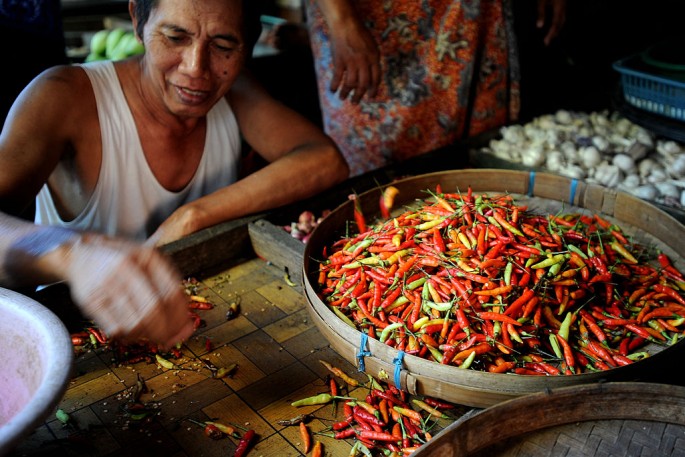China is allegedly exploiting Indonesians’ love for chili to engage in a biological warfare. Indonesian cuisine is spicy and uses a lot of chili which could be the reason why four Chinese nationals planted imported chili seeds in a leased land in Indonesia.
The seeds contain erwinia chrysanthemi, the bacteria which could cause crop failure but does not harm humans, Reuters reported. The imported chili seeds were seized by Indonesian police on a farm 60 kilometers from Jakarta and the four Chinese were arrested.
The crops planted by the four Chinese were destroyed and the chili seeds were burned. The Chinese employed 30 Indonesians who helped them plant the chili seeds on a leased land near Bogor City.
The head of Indonesia’s quarantine agency said it is the first time that the bacteria was detected in the country, according to Antara, the state-owned news agency. China, through the embassy in Jakarta, denied there is a plan to use biological weapons to destroy Indonesia’s economy. It said the accusations had no basis and “very worrying.”
However, the embassy hoped the incident would not affect bilateral relations between the two countries and friendship. Indonesia, like its neighboring Southeast Asian nations, is at odds with Beijing over claims of ownership over some islands in the South and East China Sea.
Because of the important role of chili in Indonesian cuisine, Indonesian Agriculture Minister Amran Sulaiman launched in November a nationwide initiative to grow 50 million chili plants in home gardens. To support the movement, the ministry will make available to Indonesian households and communities 10 million free chili seedlings, Freshplaza reported.
To move aims to ensure Indonesia would have continuous supply of chili while battling inflation. Data from the Ministry of Trade show that in November, the average price of chili was Rp 51,900 a kilo, more than twice the price 12 months ago.



























